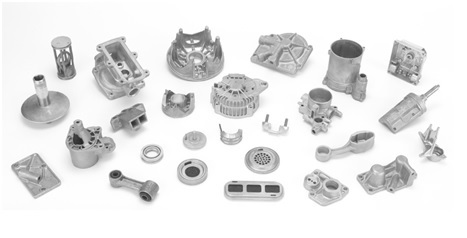Introduction
The manufacturing industry has witnessed numerous technological advancements that have revolutionized the way products are made. One such advancement is the use of magnesium casting, which has gained significant attention in recent years. Magnesium casting provides various benefits, including lightweight, high strength, excellent thermal and electrical conductivity, and superior dimensional stability. This article will explore the advancements in magnesium casting and how they are revolutionizing the manufacturing industry.
Advancements in Magnesium Casting
1. Advanced Casting Techniques
Traditionally, magnesium casting involved the use of sand molds and gravity casting. However, advancements in casting techniques have introduced new methods such as high-pressure die casting (HPDC), squeeze casting, and semi-solid casting. These techniques allow for more precise and complex designs, reduced porosity, and improved mechanical properties. HPDC, in particular, has gained popularity due to its ability to produce high-quality, net-shaped components with tight tolerances.
2. Alloy Development
To further enhance the properties of magnesium castings, significant advancements have been made in alloy development. The addition of alloying elements such as aluminum, zinc, and rare earth metals has improved the overall mechanical strength, corrosion resistance, and heat resistance of magnesium castings. These alloy developments have expanded the range of applications for magnesium castings, making them suitable for various industries, including aerospace, automotive, and electronics.
3. Surface Treatment Technologies
Surface treatment is an essential aspect of magnesium casting, as it improves the appearance, corrosion resistance, and wear resistance of the components. Advancements in surface treatment technologies, such as electroplating, anodizing, and powder coating, have made magnesium castings more durable and aesthetically appealing. Additionally, these treatments can provide specific functional properties, such as improving the adhesion of paints or creating a hard, wear-resistant surface.
4. Simulation and Modeling
Simulation and modeling techniques have played a crucial role in optimizing the casting process. These advancements allow manufacturers to predict and analyze the behavior of molten magnesium during casting, ensuring that the final product meets the desired specifications. Simulation tools can simulate the entire casting process, including filling, solidification, and cooling, while modeling techniques help in identifying potential defects and optimizing the casting parameters. These advancements have significantly reduced the time and cost involved in the trial-and-error approach.
Impact on the Manufacturing Industry
1. Lightweight Design
The lightweight nature of magnesium castings makes them ideal for industries that emphasize fuel efficiency, such as automotive and aerospace. By replacing heavier materials with magnesium castings, manufacturers can reduce the weight of their products without compromising structural integrity. This results in improved fuel efficiency, reduced emissions, and increased payload capacity in aerospace applications.

2. Cost Reduction
Advancements in magnesium casting techniques and alloy development have led to cost reductions in the manufacturing industry. The ability to produce complex and net-shaped components eliminates the need for additional machining, reducing material waste and labor costs. Moreover, the lightweight nature of magnesium castings reduces transportation costs, making them an economically viable choice for manufacturers.
3. Environmental Sustainability
Magnesium is a highly abundant element and can be easily recycled without a loss in its properties. The use of magnesium castings promotes environmental sustainability by reducing material consumption and waste generation. Additionally, the lightweight design of magnesium castings contributes to lower energy consumption during transportation, further reducing the carbon footprint associated with manufacturing operations.
Conclusion
Advancements in magnesium casting have revolutionized the manufacturing industry by providing lightweight, strong, and cost-effective solutions. The introduction of advanced casting techniques, alloy development, surface treatment technologies, and simulation tools has significantly improved the quality and efficiency of magnesium castings. As the demand for lightweight materials and sustainable manufacturing practices continues to grow, magnesium casting is expected to play a vital role in shaping the future of the manufacturing industry.
-

- Magnesium alloy die-casting Auto parts RDM housing
-

- Proizvedena srednja ploča za macbook po meri metalnih delova
-

- Magnesium alloy die-casting auto parts center control cover
-

- Lijevanje pod tlakom od legure mangenzija Tiksomoblikovanje metalnih dijelova
-

- dijelovi i komponente za viljuške ovjesa bicikla za MTB
-

- Thixomolding parts & components cell phone middle board processed

 0086-750-5616188
0086-750-5616188 +86 13392089688
+86 13392089688 sales@zhongmei-tech.com
sales@zhongmei-tech.com







